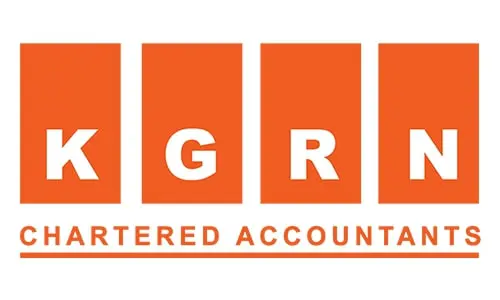What is UAE Corporate tax?
Corporate tax in UAE is a type of direct tax assessed on the net profit or income generated by corporations and other entities from their business.
The UAE has implemented a competitive corporate tax (CT) system as part of recent changes in international tax as part of its goal to be a prominent global hub for business and investment. The 9% Corporate tax in UAE, one of the lowest CT rates in the world, was probably chosen to keep the UAE appealing to foreign investors.
This guarantees that the UAE will not be regarded as a “low-taxed” jurisdiction and prevents a multinational group’s UAE entities from having to pay additional taxes in other jurisdictions where the multinational group conducts business.
What determines the UAE Corporate tax period?
The UAE corporate tax will be in effect for fiscal years beginning on or after 1 June 2023, according to information released by the UAE MoF. Based on the conclusion of its fiscal year, an entity’s UAE CT period is calculated. Consequently, entities with a
- 31 May financial year-end should file their first UAE CT return for the financial year-ending 31 May 2024
- 30 September financial year-end should file their first UAE CT return for the financial year-ending 30 September 2024
- 31 December financial year-end should file their first UAE CT return for the financial year-ending 31 December 2024. The due date for filing CT returns has not been specified yet.
UAE Corporate Tax Rate
UAE Corporate Tax rates are as follows, according to the Ministry of Finance:
- 0 per cent for taxable income up to AED 375,000.
- 9 per cent for taxable income above AED 375,000 and
- a different tax rate (yet to be determined) for large multinational corporations that meet specific criteria established in reference to OECD ‘Pillar two’ of the Base Erosion and Profit Shifting Project.
When will the Corporate tax law and additional Corporate tax information be published?
It is currently unknown when the UAE Corporate tax law and additional guidance will be published. Given that the UAE Corporate tax regime will go into effect on 1 June 2023, and the UAE MoF has stated its intention to give UAE businesses plenty of time to prepare, the UAE Corporate tax law and relevant guidance could be published as early as June 2022.
UAE Corporate Tax Objectives
The UAE hopes to accomplish the following by implementing the Corporate tax:
- Consolidate its position as a leading global business and investment hub
- Accelerate its development and transformation to achieve its strategic goals.
- Reaffirm its commitment to meeting international tax transparency standards and preventing harmful tax practises
Scope
Corporate tax will be applied to:
- All businesses and individuals operating in the UAE under the auspices of a commercial licence
- Businesses in free zones (The UAE Corporate tax regime will maintain the Corporate tax incentives currently available to free zone businesses that meet all regulatory requirements and do not conduct business on the UAE’s mainland.)
- Foreign entities and individuals are only permitted if they conduct ongoing or regular trade or business in the UAE.
- Banking activities
- Companies involved in real estate management, construction, development, agency, and brokerage.
Exceptions to UAE Corporate tax
The rules for UAE corporate tax exemptions are outlined below.
- Natural resource extraction businesses are exempt from Corporate tax because they will continue to be subject to Emirate-level corporate taxation.
- Dividends and capital gains earned by a UAE company from qualifying shareholdings will be tax-free.
If the necessary conditions are met, qualifying intra-group transactions and reorganizations will not be subject to Corporate tax.
Furthermore, Corporate tax will not apply to:
- An individual’s salary and other employment earnings, whether from the public or private sector
- Individuals earn interest and other income from bank deposits or savings plans.
- Dividends, capital gains, interest, royalties, and other investment returns earned by a foreign investor
- Individuals investing in real estate in their personal capacity.
- Dividends, capital gains, and other income earned by individuals from personal ownership of shares or other securities
What supporting documentation must be submitted, and how will Corporate tax returns be filed?
It is anticipated that Corporate tax returns will be submitted online through a site akin to those used for VAT and ESR filings. The supporting documents that must be filed have not yet been given any details.
According to customs in different countries, the following papers may be needed:
• Financial records
• A calculation of taxable income that displays changes made to the net profit in the accounting.
• Worksheets and schedules for tax depreciation.
• Records pertaining to transfer pricing.
• Details of related party transactions.
• The movement of supplies.
Is it expected that the implementation of Corporate tax will have an impact on Economic Substance Regulations (ESR)?
It is unknown whether the UAE ESR will change as a result of the UAE’s implementation of corporate tax. The ESR was initially intended to prevent multinational corporations from artificially shifting profits to jurisdictions with low or no income tax without having significant operations there. As a result, the ESR may continue to apply to UAE entities and branches that take advantage of free zone benefits.
The ESR is set to be phased out for firms subject to a 9% UAE corporate tax rate. Given recent advances in the UAE’s ESR infrastructure (for example, the establishment of an ESR Permanent Committee and the constantly updated ESR MoF webpage), we do not expect the ESR to be fully disbanded, although its scope may be adjusted. We anticipate that more information on this subject will be available in due course.
What should companies do now?
With the announcements, there is certainty surrounding key design principles such as timing, scope, tax base, and rate. Businesses can begin to consider the implications of their actions.
The implications can be far-reaching, and tax and finance teams should collaborate to develop a strategy. To fully assess the implications, businesses should first gain a thorough understanding of the proposed changes.
Changes to the legal structure, business model, contracting and (transfer) pricing, accounting and profit, systems and data, and organizational structure may be required to address these implications (e.g. tax function). Tax and finance teams should be prepared to begin discussions with various departments and stakeholders within the business about the anticipated impacts.
The Corporate income tax in UAE will be administered, collected, and enforced by the Federal Tax Authority (FTA). FTA will soon add more corporate tax references and guides, as well as information on how to register and file returns, to its website.
On the Ministry of Finance’s website, you can find answers to frequently asked questions about the UAE’s corporate tax.
How can KGRN assist you?
We have a dedicated corporate tax team in the UAE with extensive experience who can assist you throughout your readiness journey. Please contact one of our tax experts if you require assistance at any stage of the Corporate tax implementation.
For more information, Contact us at [email protected]/ +971 4 557 0204







